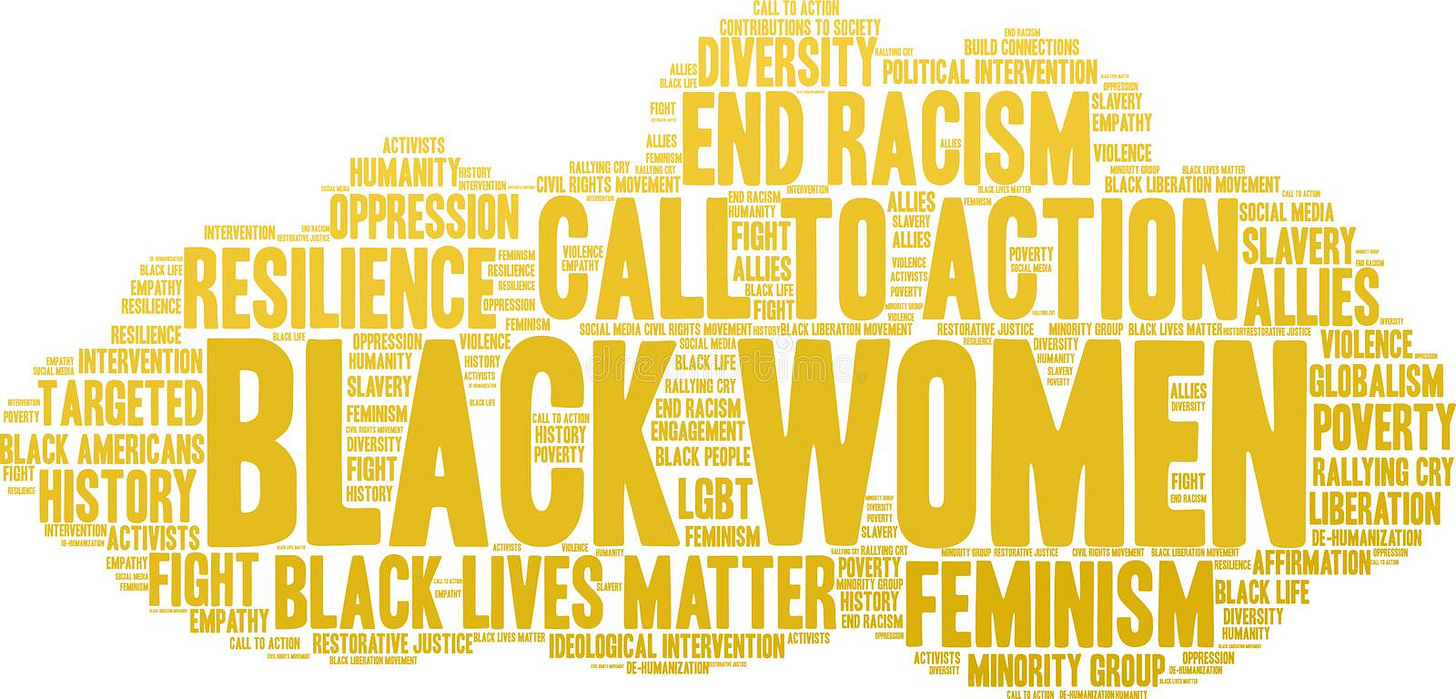When Racial Hatred is Aimed at Black Christians
I have heard about the moral apathy of White Christian America for many years. The notion that “racism is out there” is a refrain in the song, “I'm not a racist,” that we’ve all heard throughout our lives. I now live in the UK, and they frequently sing this song. Many African descended people, across the globe, got a chuckle when reading that Prince William stated, “We are very much not racist.”
Racism is not only about one’s conscious intent. It is about appropriating the standards and the structures of social systems which cause injury to others through a racial caste system. Therefore, it is not only untrue, but disingenuous for anyone to benefit from a social system which provides automatic advantage for “Whiteness,” to do nothing to challenge that system, and simultaneously declare they are not racist. Our shared history bears this out.
While many Christians across the globe annually celebrate Christmas, racial hatred doesn’t go on holiday. For example, on December 25, 1956, the Ku Klux Klan bombed the house of civil rights leader, Rev. Fred Shuttlesworth. Not only did they try to kill this minister for attempting to be treated as fully human, they did so on a holiday which, despite the commercialism associated with it, is intended to signal a pause in our lives. It is a day of celebration that God has faithfully honored the promise to be Immanuel – God with us (Mat. 1:23, NIV). This “with-ness” of God comes through the human form of Jesus, and is still celebrated through our own sense of being.
During the holidays, and even Sunday afternoons, our family dinners largely symbolize a call to community. This call represents our determination to live out the presence and faithfulness of God that causes us to connect with those less fortunate, call relatives from whom we have been estranged, and reconsider self care practices to restore our souls. God with us!
But it is more than this. Christmas must also engage with inequity that causes homelessness as we recall the plight of Mary who was told there was "no room [for her] in the inn." It must address the root causes of economic vulnerability and boldly confront economic violence. We need to address the issues which cause inequity. This requires us to engage in an empathy which refuses the comfort of unfair disadvantages for one group and advantages for another, we cannot adequately express or embody the proclamation that Jesus is Emmanuel - God with us!
As ordained clergy, I lived for five years in a city which didn’t have my own church denomination close by. I began worshipping with an church that is predominantly White as there were not a lot of other options. I’d never been in predominantly White church services. I brought with me a curiosity about this new experience and a desire to connect with the community where I was living.
I attended this predominantly White Christian church as the US continued to grapple with its racial past. Many church leaders remained mainly silent regarding racialized violence. In 2015, seven African American churches were burned within 10 days. That same year, we witnessed the slaughter of Black, peaceful church goers after they concluded their Bible study. This church welcomed a young man, Dylan Roof, into their church. Despite experiencing the acceptance and love of God, he interpreted Black church goers as a threat to his existence. This White Supremacist would then pull out a gun and, one by one, end the lives of people who extended grace and life to him. For many Black Americans, this began to symbolize “blood on the leaves and blood at the roots” of Americana.
I have heard about the moral apathy of White Christian America for many years. The notion that “racism is out there” is a refrain in the song, “I'm not a racist,” that we’ve all heard throughout our lives. I now live in the UK, and they frequently sing this song. Many African descended people, across the globe, got a chuckle when reading that Prince William stated, “We are very much not racist.”
Racism is not only about one’s conscious intent. It is about appropriating the standards and the structures of social systems which cause injury to others through a racial caste system. Therefore, it is not only untrue, but disingenuous for anyone to benefit from a social system which provides automatic advantage for “Whiteness,” to do nothing to challenge that system, and simultaneously declare they are not racist. Our shared history bears this out.
.
If the church I attended is any indication, White Christian churches were largely silent. The Ku Klux Klan (KKK) is not only a White supremacist group – they are a White Christian supremacist group. Documentaries about the KKK reveal their outdoor meetings frequently begin with church hymns about blood and sacrifice.
The "burning cross" is a symbol of racial intimidation and violence - creating a visceral reaction from African Americans. (Click here for a video of the KKK for additional information about this history. Please be aware this might be triggering for some people.)
There are many White Americans, however, who saw crosses blazing on the lawns of their Black neighbors and declared that the cross was "glorious." This demonstrates the inability to discern between the utter depravity of racialized violence and the actual glorious message of an everlasting love that cannot be extinguished through the violence of the cross. Many White Christians today stumble within the quicksand of moral apathy. In this instance, "moral apathy" is used to indicate more than indifference. Rather, "moral apathy" is to acknowledge that indifference is actually the moral compass or their moral center. It is the opposite of "woke," which is the urban slang word used to mean "aware," in particular, regarding social justice issues.
American law has hidden behind the skirts of "free expression" which forces vulnerable communities to persistently endure hate speech - including the burning cross which is often a prelude to murder. Despite these violent assaults upon Black dignity, variations of that racial terror continues with full impunity.
America has struggled to find its own moral compass. Instead, it uses various laws such as "stand your ground" (used in the defense of the killing of Travon Martin), and the actual creation of the police as a group intended to protect the property of White men.
The painful truth, is Western Christianity is not simply complicit with racial apartheid - it's predicated upon it. Several myths of racial supremacy continue to this day. How many Christians have declared, for example, that Jesus didn't actually condemn slavery with the implication that the institution has viability? Another perpetuated myth is referenced as the "curse of Ham." While this belief continues to be envisaged upon African descended people to this day, Stephen de Feuvre points out that Ham was never cursed. Rather than perpetuate the myth of Ham, de Feuvre demonstrates the spiritual tenacity required to dismantle bad theology.
Why is "White Evangelicalism" so often in utter conflict with Black humanity? In the article entitled, "Why Did So Many Christians Support Slavery," Christianity Today explores the many beliefs which supported Christian enslavement including assumptions that Africans were somehow morally deficient and practiced "witchcraft." The assumption that the Christian Bible creates the blueprint for racial apartheid is at the heart of Western Christian support of racial bigotry and hatred. Thus, White pulpits were often silent on Sunday morning when a series of Black churches were burned, or when a White nationalist went into a Black church which accepted and prayed with him, right before he murdered nine of those peaceful worshippers.
The economic gains created by keeping African descended people on the outskirts of the economy simply bolsters these beliefs.
To this day, we keep hearing White citizens (not only in the US) declare that slavery wasn't so bad, or that it would be okay if managed differently. But the liberatory power of God is ignored in such proclamations. God is with us in our suffering, but our God is more than this. Our God is the one that the Prophet Isaiah saw in the distant future.
The Spirit of the Sovereign Lord is on me,
because the Lord has anointed me
to proclaim good news to the poor.
He has sent me to bind up the brokenhearted,
to proclaim freedom for the captives
and release from darkness for the prisoners,[a] (Is. 61:1)
To declare God complicit with one's inhumanity is to reduce God to the worst part of ourselves. The power of the Gospel is its declaration that God is both with us and beyond us. Indeed, as declared by Jesus, our God has come to "set the captives free!" (Lu. 4:18). Today, God wants to free all who are held captive by their pain as it manifests itself in hatred and terror. God's liberatory power is to set you free!
Dr. CL Nash for the Misogynoir to Mishpat (M2M) Research Network © 2023




